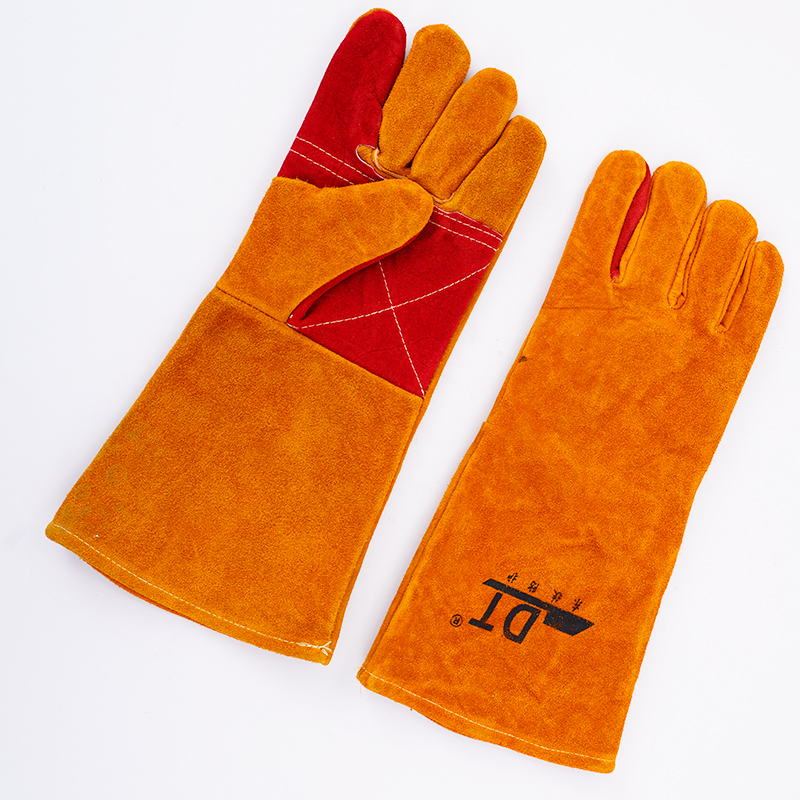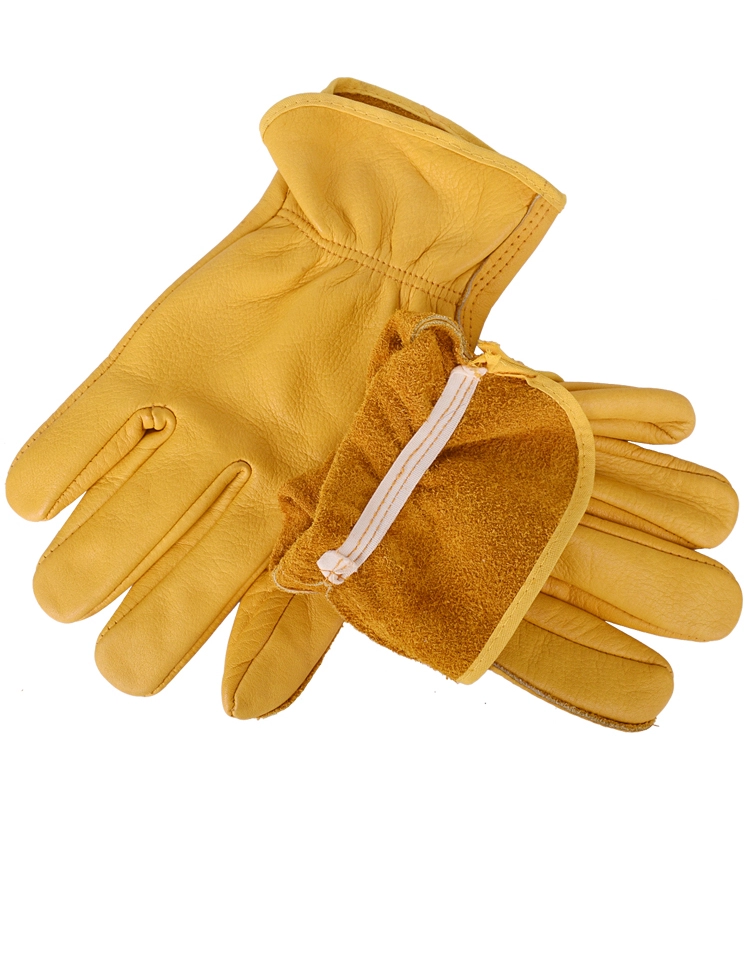The Difference Between Cowhide and Sheepskin for Welding Gloves
Cowhide and sheepskin have their own characteristics and differences when making welding gloves.
Wear Resistance and Strength: Leather gloves are usually more durable and tear resistant, providing better protection, especially when subjected to heavy physical pressure and wear. The fiber structure of cowhide is relatively tight, so gloves made from cowhide are more sturdy and durable. In contrast, although sheepskin is soft, it is usually not as durable and strong as cowhide.
Softness and Flexibility: Sheepskin gloves perform better in terms of softness and flexibility, making them more suitable for welding tasks that require fine handling. The pores of sheepskin are arranged in a scale like or serrated pattern, with a soft touch and good elasticity, making it suitable for making gloves that require flexible joint movement.

Heat Resistance: Welding gloves need to have a certain degree of heat resistance to protect the welder's hands from high temperature injuries. Both cowhide and sheepskin can improve their heat resistance through special treatment, but cowhide is generally considered to have better natural heat resistance without special treatment.
Comfort: Sheepskin, due to its soft texture, typically provides higher comfort when worn. Cowhide gloves may feel stiff during initial use and require a period of wear to achieve optimal comfort.
Price: Typically, cowhide gloves may be more cost-effective than sheepskin gloves due to their durability and wide range of applications. Sheepskin gloves may be more expensive due to their softness and comfort.
Maintenance: Leather gloves are usually easier to maintain, while sheepskin gloves may require more attention and appropriate maintenance measures to maintain their softness and extend their lifespan.

When choosing welding gloves, one should decide whether to use cowhide or sheepskin gloves based on the specific type of welding work, environmental conditions, and personal comfort preferences. For example, for heavy welding work that requires high-strength protection, cowhide gloves may be a better choice; For lightweight welding tasks that require precise operation, sheepskin gloves may be more suitable. At the same time, factors such as glove size, design, and compliance with safety standards should also be considered.






